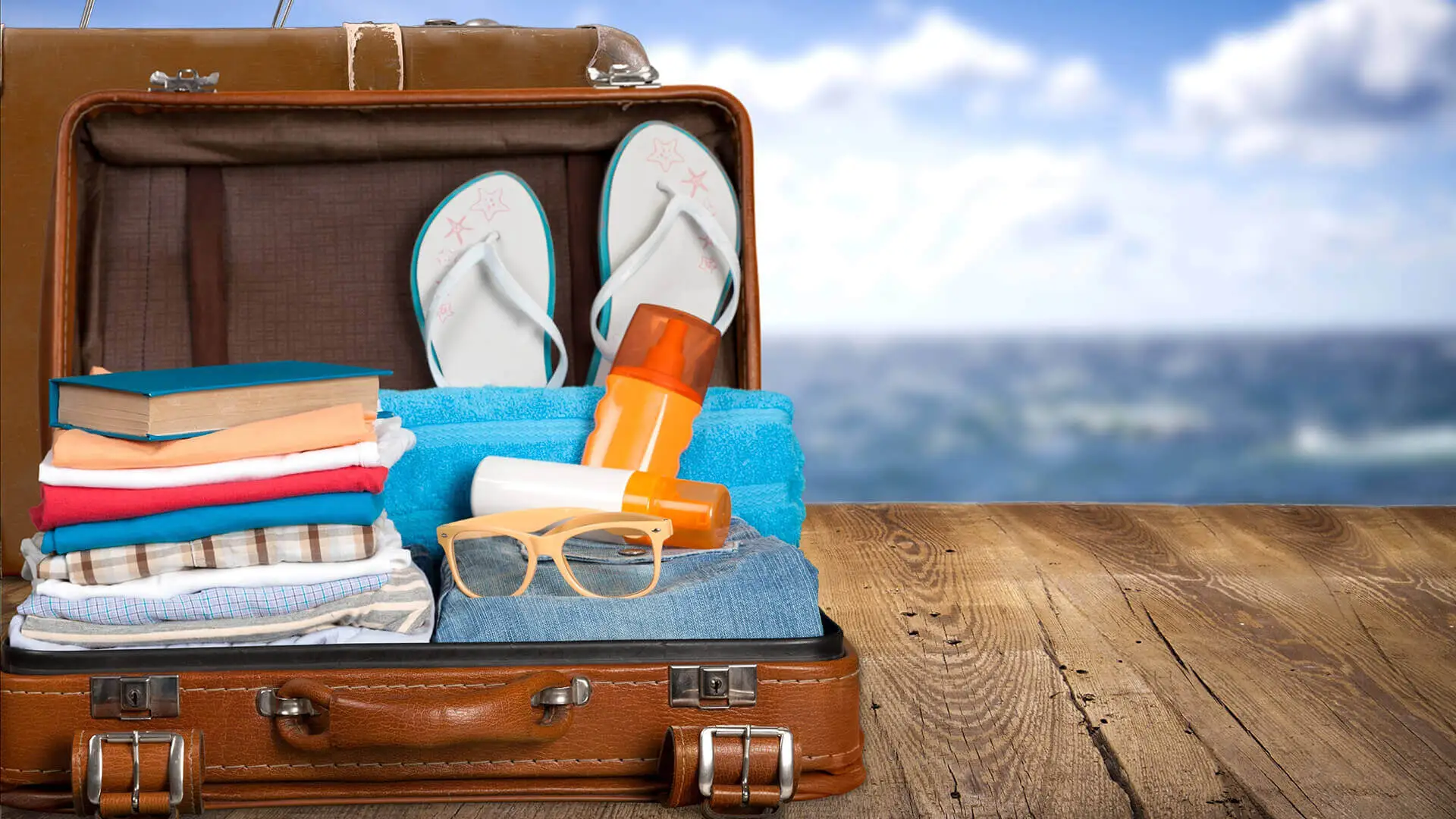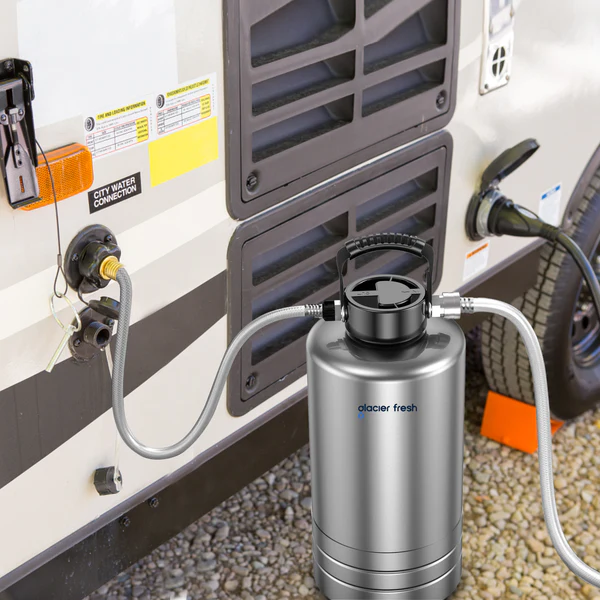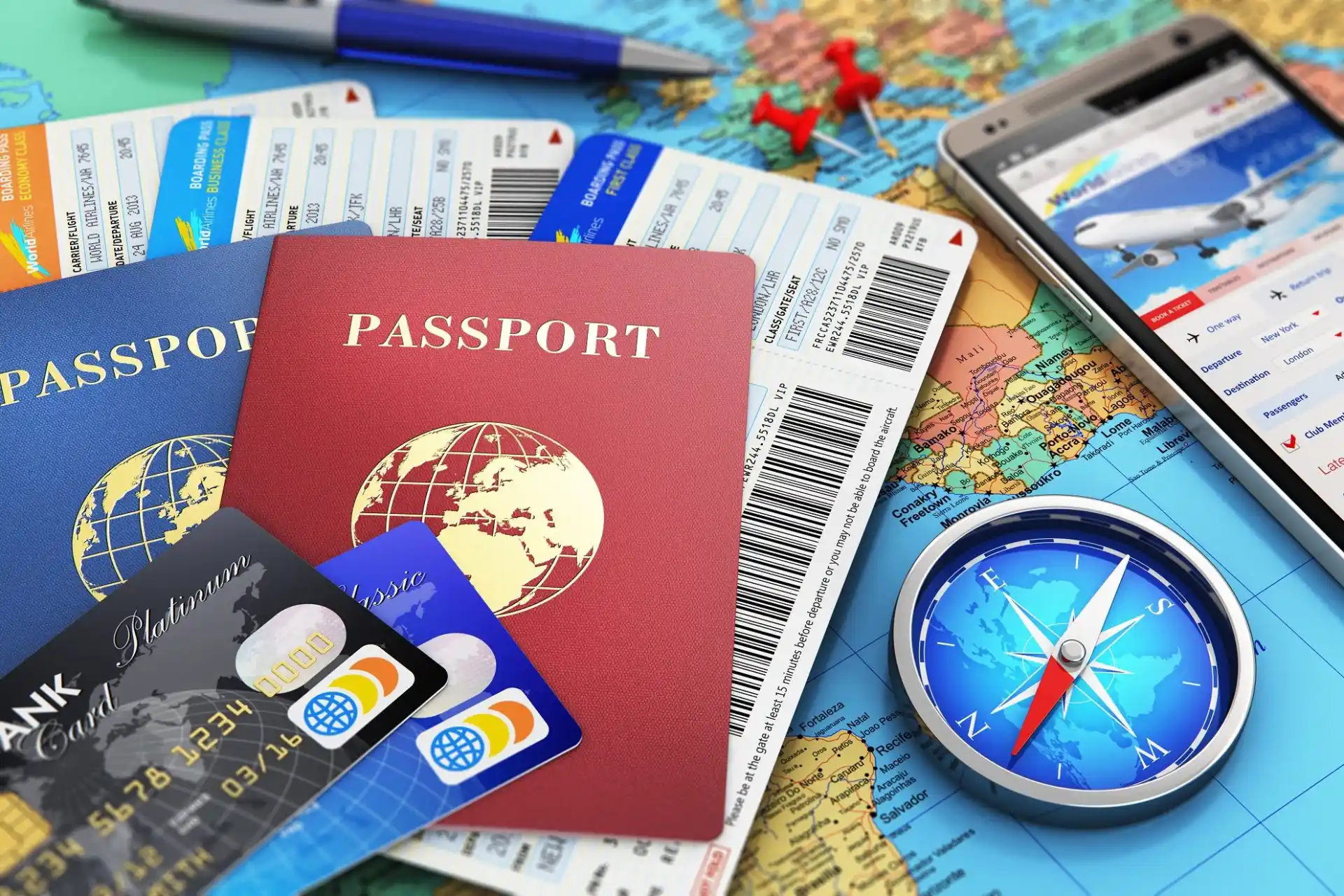Traveling internationally is a thrilling experience that opens doors to new cultures, landscapes, and adventures. However, preparation is key to ensuring your journey is as smooth and stress-free as possible. The excitement of exploring a new country can easily be overshadowed by the challenge of remembering everything you need. From essential documents to comfort and safety items, having the right travel gear can make all the difference. The last thing you want is to realize you’ve forgotten something critical once you’re already far from home.

Whether you’re flying for business, embarking on a solo adventure, or going on a family vacation, the items you pack can impact your overall travel experience. As you prepare for your international trip, it’s important to keep in mind not just the obvious items like clothes and toiletries, but also more specialized gear like travel documents, health supplies, and tech accessories. These items can not only improve your journey but also ensure you are fully equipped to handle the unexpected. After all, you don’t want to find yourself in a foreign country struggling with something that could easily have been avoided.
To help you prepare for your international travels, we’ve compiled a detailed guide on the most important things you should not forget when heading overseas. Whether it’s your travel documents or daily essentials like a reusable water bottle, this guide will help you stay organized and travel with confidence. So, let’s take a closer look at the crucial items you should have packed before you board your next international flight.
Here’s an expanded list of things you shouldn’t forget when traveling internationally:
1. Travel Documents

When it comes to international travel, your travel documents are your most essential item. These documents are necessary for crossing borders, checking into accommodations, and gaining access to certain locations. Double-check and make sure you have the following:
- Passport: Ensure that your passport is valid for at least six months beyond the dates of your trip. Many countries require this validity period for entry.
- Visa: Some destinations require a visa for entry. Research whether you need a visa for your destination and obtain it in advance.
- Travel Insurance: Health and travel insurance is important when traveling abroad. It covers medical emergencies, trip cancellations, and unexpected events.
- Flight and Accommodation Details: Always keep a printed or digital copy of your flight ticket, hotel reservations, and the addresses of your accommodation. This will come in handy for check-in or in case of emergencies.
- Emergency Contacts: Create a list of emergency contacts, including your country’s embassy in the destination country, local emergency numbers, and family or friends at home.
Having these documents organized and easily accessible will streamline your airport experience and minimize potential travel disruptions.
2. Reusable Water Bottles

Staying hydrated is crucial, especially when you’re traveling internationally and navigating airports, long flights, and new environments. A reusable water bottle is one of the most eco-friendly and practical travel essentials. Here’s why:
- Hydration on-the-go: Having a water bottle readily available helps you avoid paying for overpriced bottled water, especially at airports.
- Environmental Impact: Reusable bottles reduce the waste of single-use plastic, making them an eco-friendly travel choice.
- Cost-saving: You can refill your bottle at water fountains or public taps, helping you save money during your travels.
Just be sure to empty your bottle before going through airport security, as liquids over 100ml are prohibited.
3. Hand Sanitizer and Wet Wipes

International travel exposes you to a variety of germs, especially in crowded airports, buses, and train stations. Having hand sanitizer and wet wipes handy can protect you from illness and keep you feeling clean and refreshed throughout your journey:
- Germ Protection: Airports, hotels, and tourist attractions are often high-traffic areas where germs spread quickly. Regularly using hand sanitizer can help you avoid getting sick.
- Convenience: Wet wipes are handy for wiping down surfaces such as airplane trays, table tops in restaurants, and public transport seats.
- Post-Meal Cleanup: Wet wipes are particularly useful for cleaning your hands and face after meals, especially when you don’t have immediate access to a sink.
Opt for travel-sized containers to comply with security regulations, and keep them easily accessible throughout your journey.
4. Medicine Box and First Aid Kit

Having a medicine box and a first aid kit is essential for dealing with minor health issues that could arise during your trip. Travel can sometimes lead to digestive issues, headaches, or cuts, so it’s best to be prepared:
- Pain Relief: Pack pain relievers like ibuprofen or aspirin to manage headaches, body aches, or minor injuries.
- Stomach Remedies: If you’re traveling to a destination with a different cuisine, consider packing anti-diarrheal medications or antacids to help with any stomach upset.
- Prescription Medications: Always bring any necessary prescription medications with you, along with a copy of your doctor’s prescription, to avoid issues with customs.
- First Aid Supplies: Pack bandages, antiseptic wipes, gauze, and other first-aid items in case of small cuts, scrapes, or bruises.
- Health and Safety: If you’re traveling to a destination with a risk of insect-borne diseases, don’t forget insect repellent and medications for possible allergies.
Having this kit on hand will prevent minor health problems from turning into major issues while traveling abroad.
5. Hat and Sun-Glasses

Whether you’re heading to a sunny beach or trekking through the mountains, protecting yourself from the sun is vital. A hat and sunglasses are essential accessories to ensure your comfort and health:
- Hat: A wide-brimmed hat offers excellent sun protection for your face, neck, and shoulders. This is especially important if you’re traveling to tropical or desert destinations.
- Sunglasses: Protect your eyes from UV rays by wearing sunglasses with 100% UV protection. Look for polarized lenses, which reduce glare and improve clarity, particularly when exploring coastal regions or snowy landscapes.
Sun protection is an important consideration for any trip, so don’t forget these key accessories.
6. A Universal Adaptor

When traveling internationally, electrical outlets and plug types can vary greatly depending on your destination. A universal adaptor is essential for keeping your devices charged and functional:
- Multiple Plug Types: A universal adaptor can accommodate different plug types, so you can plug your charger into the local outlets without worrying about compatibility.
- USB Ports: Many universal adaptors come with built-in USB ports, allowing you to charge multiple devices simultaneously.
- Travel Convenience: A universal adaptor is compact and easy to carry, so you can keep it in your carry-on bag and use it on the go.
Before packing, make sure your devices are compatible with the voltage in your destination country to avoid damage.
7. TSA-Approved Locks

A TSA-approved lock is an essential item for securing your luggage during travel. These locks are designed to be easily opened by security personnel without damaging the lock, giving you peace of mind that your belongings are safe while still allowing airport staff access when necessary:
- Security: TSA locks add an extra layer of protection to your checked luggage, reducing the chances of theft or tampering.
- Peace of Mind: Knowing that your bags are locked and secure will allow you to relax during your journey.
- Easy Access: Since TSA officers can unlock these locks without destroying them, you won’t need to worry about any inconvenience at security checkpoints.
Make sure you get locks that comply with TSA standards to avoid having them cut open during security checks.
8. Headphones

Long flights, layovers, and bus rides can lead to a lot of downtime. Headphones are a great way to make your travel more enjoyable:
- Entertainment: Whether you enjoy listening to music, podcasts, or watching movies, headphones make it easier to stay entertained during your travels.
- Noise-canceling: A good pair of noise-canceling headphones can block out the noisy environments of airports, buses, or trains, making your journey more peaceful.
- Privacy: You can have private conversations or video calls without disturbing others or being disturbed by their noise.
Headphones are a versatile travel essential for comfort and entertainment.
9. Footwear

The right footwear can make all the difference during international travel, especially when you’re exploring new cities or nature spots. Here’s what to pack:
- Comfortable Walking Shoes: Whether you’re sightseeing in a city or trekking through nature, a good pair of walking shoes is essential for comfort and support.
- Sandals or Flip-Flops: Ideal for relaxing at the beach or in the shower.
- Waterproof Shoes: Perfect for unpredictable weather or if you’re traveling to areas with lots of rain or outdoor activities like hiking.
Invest in shoes that provide comfort for extended walking and that are durable enough for the terrain you’ll be covering.
10. Book Activities in Advance

To make the most of your trip, especially to popular tourist destinations, it’s a good idea to book activities in advance. This can save you time and ensure that you don’t miss out on must-see experiences:
- Attraction Tickets: Book tickets for museums, parks, or other attractions ahead of time to avoid long lines and to ensure availability.
- Guided Tours: If you want to learn more about the local culture or history, consider booking a guided tour in advance.
- Dining Reservations: For sought-after restaurants, make a reservation to avoid waiting or missing out.
Booking activities in advance helps you maximize your travel time and experience the destination to its fullest.
Final Thoughts
When preparing for international travel, packing the right items is essential to ensure a smooth and stress-free experience. From important travel documents to healthcare essentials and practical accessories like adapters and locks, make sure you don’t forget any of these crucial items. Proper planning can make all the difference in your journey, ensuring you enjoy every moment of your adventure abroad. Safe travels!
FAQs on What Not to Forget When Traveling Internationally
- What travel documents do I need for international travel?
- When traveling internationally, your most crucial documents include a valid passport, travel visas (if required), flight tickets, travel insurance, hotel bookings, and any other required identification or paperwork specific to your destination. It’s also wise to make photocopies or take pictures of these documents in case they are lost or stolen.
- How do I prepare for an international trip?
- To prepare for an international trip, start by researching your destination’s entry requirements and culture. Create a checklist of essential items like travel documents, money, medication, and electronics. Book accommodations, organize transportation, and ensure your health precautions (vaccinations, prescriptions) are in place. Finally, inform your bank of your travel dates to avoid any issues with your credit or debit cards.
- What are the essentials to pack for international travel?
- The essentials for international travel include travel documents, a universal adapter, a first-aid kit, reusable water bottles, toiletries, comfortable clothing, and proper footwear. Don’t forget items like sunscreen, hand sanitizer, a hat, and any specific medications or health items you may need. These basic necessities will ensure you are comfortable, prepared, and safe throughout your journey.
- Do I need a universal adapter for international trips?
- Yes, a universal adapter is essential for international travel, as different countries use different types of power outlets. A universal adapter ensures you can charge your electronic devices, such as phones, laptops, and cameras, no matter where you are. Be sure to check the voltage compatibility of your devices to avoid damage.
- How can I stay hydrated while traveling internationally?
- Staying hydrated is crucial while traveling. A reusable water bottle will help you avoid buying bottled water, saving you money and reducing plastic waste. Many airports provide refill stations for water bottles, and it’s wise to carry a bottle with you throughout the day, especially in warmer destinations.
- What type of footwear should I pack for international travel?
- Comfortable, durable, and versatile footwear is essential for international travel. Depending on your destination, pack shoes suitable for walking, hiking, and any special activities (e.g., water shoes, dress shoes, or boots). Ensure they’re broken in to avoid blisters and that they offer good support for long days of exploration.
- What are TSA-approved locks and why do I need them?
- TSA-approved locks are locks that can be opened by security officers using a master key without damaging the lock or your luggage. These locks are necessary for securing your belongings while traveling and provide peace of mind knowing your bags are safe, especially when passing through airports or busy travel hubs.
- How do I manage my health during international travel?
- Managing your health while traveling internationally includes ensuring you have all necessary vaccinations and prescription medications. Carry a travel health kit with essentials like pain relievers, anti-diarrheal medications, motion sickness pills, and hand sanitizer. Be mindful of food and water safety and avoid risky activities that could endanger your health.
- Why is it important to book activities in advance for international travel?
- Booking activities in advance ensures you don’t miss out on must-see attractions, particularly in popular tourist destinations. By securing your spots early, you also avoid long wait times and crowded venues. Booking ahead often leads to discounted prices and provides a clear itinerary, making your trip more organized and stress-free.
- What should I do if I forget something important during my international trip?
- If you forget something important, stay calm. You can often buy necessities at local stores or pharmacies. If it’s a travel document or something essential, contact your embassy or consulate for assistance. Additionally, many online services allow you to replace lost items, such as travel tickets, prescriptions, or phone chargers, relatively easily.




















Hi! Would you mind if I share your blog with my facebook group? There’s a lot of folks that I think would really appreciate your content. Please let me know. Many thanks
Only wanna admit that this is very helpful, Thanks for taking your time to write this.